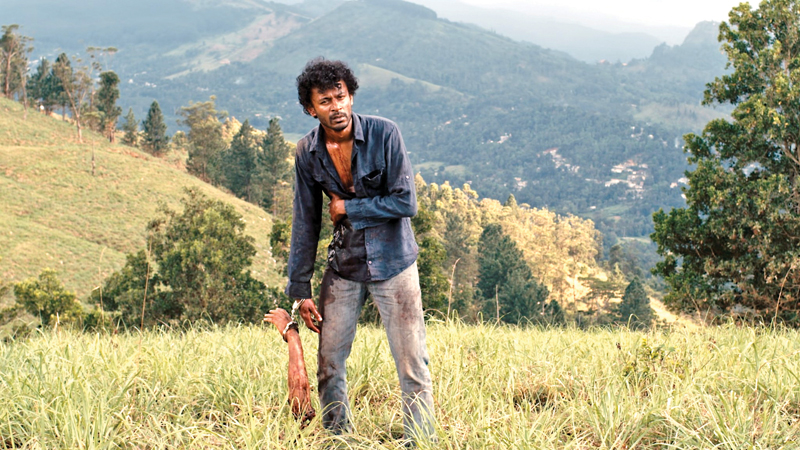 Life’s like a merry-go-round, spinning through familiar people time and again, as if stuck in a cosmic déjà vu. My participation in the 22nd Dhaka International Film Festival as a jury member in the Women Filmmakers section felt like one such familiar encounter. It marked my debut as an international jury representative. At the festival, Jagath Manuwarna was awarded the Best Director’s Award in the Asian cinema category for his debut film, ‘Whispering Mountains’. It felt surreal to accept the award on his behalf, especially since we’ve been cinema buddies for decades. Sharing that deep passion for film made it all the more surreal!
Life’s like a merry-go-round, spinning through familiar people time and again, as if stuck in a cosmic déjà vu. My participation in the 22nd Dhaka International Film Festival as a jury member in the Women Filmmakers section felt like one such familiar encounter. It marked my debut as an international jury representative. At the festival, Jagath Manuwarna was awarded the Best Director’s Award in the Asian cinema category for his debut film, ‘Whispering Mountains’. It felt surreal to accept the award on his behalf, especially since we’ve been cinema buddies for decades. Sharing that deep passion for film made it all the more surreal!
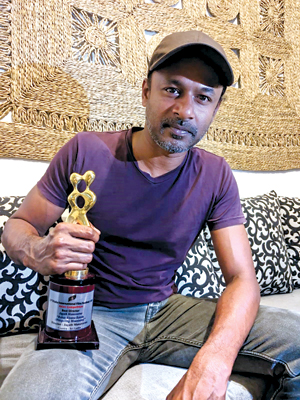
Jagath Manuwarna with the Best Director’s Award DIFF 2024
Hailing from Galaha in the Central Province of Sri Lanka, Manuwarna arrived in Colombo two decades ago as a school-leaver, driven by a sheer passion to become an actor. He learned the ABCs of acting at the Tower Hall Foundation, where he had the opportunity to be involved in theatre productions not only as an actor but also in stage management. As he recalled in a recent interview I had with him, he received his very first award at the State Drama Festival for stage management in ‘Malsara Bisau’ by Hemantha Prasad. “It was a time when we did everything in our power to ensure the success of theatre plays. We had nothing materialistically, just a pure passion for art. The desire to become an actor and create films was our sole driving force in life,” Manuwarna reminisced.
Manuwarna’s formula
“Speck of Fire” (Gindara Poddak) in 2006 marked Manuwarna’s debut in short film, winning him the Best Short Film Award at the Guerrilla Film Festival. As a young, passionate film enthusiast, I vividly recall watching the film at the Guerrilla Film Festival held at the Artisans Art Gallery, an atelier spearheaded by Mahendra Perera that paved the way for many aspiring filmmakers and actors. The film’s theme was refreshingly contemporary, portraying a simple yet profound storyline of a young boy striving to assert his individuality in an unfamiliar setting. It delves into the societal reaction towards outsiders and the challenges of self-acceptance. Manuwarna’s filmmaking journey ignited with “Speck of Fire,” garnering recognition from his inaugural endeavour.
He subsequently crafted three more short films — “Water Lilly,” “Playing Cards,” and “Cleansing” — each earning acclaim at local film festivals. What’s intriguing about these shorts is Manuwarna’s experimentation with the possibility of weaving them into a feature film. He shared this concept during the screening of “Water Lily” in 2011, though met with scepticism from the audience. However, thirteen years later, with the release of his debut feature film, “Whispering Mountains,” it became evident that Manuwarna was not merely joking.
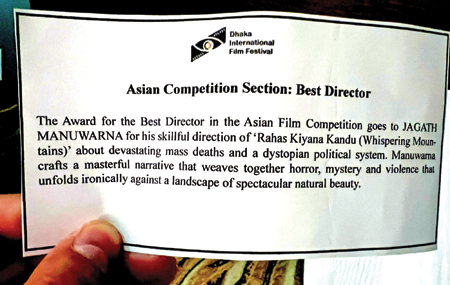
DIFF 2024 Asian Cinema Best Director’s jury citation for the Whispering Mountains
The film seamlessly integrates scenes from his earlier shorts, expanding upon their narratives to create a cohesive and original story. It’s a testament to Manuwarna’s innovative approach to filmmaking, as he successfully forged his own formula for cinematic storytelling as a response to the harsh ground realities.
“There’s no universally applicable formula for making films. It varies from person to person and, most importantly, depends on the socio-political realities of the country you reside in. It’s true that there’s a lack of government support or funding for the arts compared to other parts of the world, and finding professional producers in filmmaking can be challenging. However, I’ve always believed that if you’re driven by a deep passion for filmmaking, you’ll find your own path to creating your film.
From the outset, I knew that nobody would invest in my ideal film, but I managed to secure funding for short films. Thus, I made short films with the larger goal of eventually creating a feature film in mind. Although it took many years and required significant effort, it ultimately proved successful,” Manuwarna explained.
Millennials’ cinema
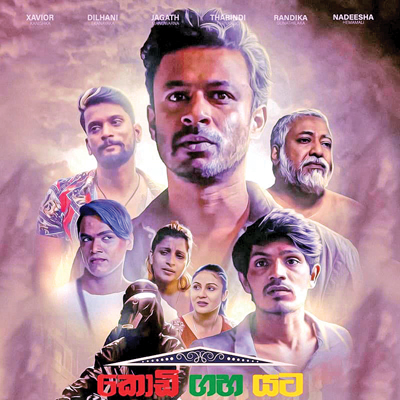
Kodi Gaha Yata
Manuwarna’s generation in cinema falls into the fourth generation of Sri Lankan cinema, often identified as millennials. Unfortunately, they are born into a cinematic landscape devoid of a film industry and a substantial audience. However, they are fortunate to belong to a digital era characterised by technological advancements, which serves as their only advantage.
The irony among most filmmakers of this millennial generation is that they are ‘yet to become filmmakers,’ as many of their debut films have been lined up in the National Film Board without a plan for theatrical release.
This contrasts with previous generations, such as Dr.Lester James Peiris, who had the privilege of class and the opportunity to make films that left lasting impressions. Similarly, Dharmasena Pathiraja, a pioneer of the second generation of Sri Lankan cinema, thrived in the golden era when there was a considerable audience for cinema despite limited entertainment options. The third generation, represented by Asoka Handagama and Prasanna Vithanage, enjoyed fairly decent opportunities to establish themselves and continue making films.
Nevertheless, it’s essential to acknowledge the changing times. While internal support for filmmaking may be lacking, there are ample opportunities for support regionally and globally, particularly through film festivals and co-production ventures. Additionally, leveraging the strong diaspora community worldwide presents alternatives such as crowd funding and alternative film screenings within these communities.
KGY Season 2
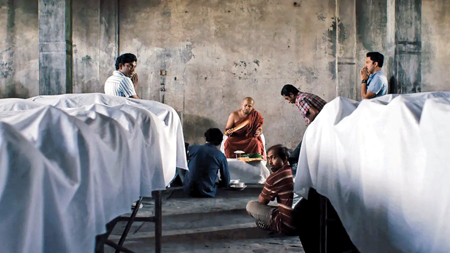
Whispering Mountains
“Whispering Mountains” received a positive response from both local and diaspora audiences. Released amidst the success of my debut TV series “Kodi Gaha Yata,” I was able to secure many film halls for the nationwide release I had anticipated. It’s undeniable that reaching audiences through television or YouTube is easier than through cinema. Hence, despite it not being my preferred medium, I ventured into TV series production with “KGY.” This decision paid off, as “KGY” garnered massive viewership on YouTube and television. My next goal is to produce “KGY Season 2” as a film, aiming to draw at least half of the audience who watched “KGY” on TV or YouTube to the cinema,” Manuwarna disclosed.
Currently, Manuwarna is collaborating with his scriptwriter, Aruna Premaratna, on penning KGY Season 2, and as he explained, production will soon commence.
How to become a filmmaker?
As an experienced actor who has succeeded in numerous roles in theater, television, and cinema, Manuwarna explains his newfound realisation of how to become a filmmaker in a country like Sri Lanka. “The magic behind my filmmaking lies in my friends. They have been my greatest asset throughout my journey. From scriptwriting to the development stage, casting, shooting, post-production, and every aspect, my circle of friends has supported me unwaveringly. I firmly believe in collaborations. In a country with limited resources, human capital is our greatest strength in every endeavour, whether in art or politics. Through collective effort, we can achieve great things. This belief in collectivism is my strength in cinema,” Manuwarna emphasised.







